This privacy policy applies to this website (https://catma.de), as well as the CATMA web application (accessible at https://app.catma.de), our GitLab backend (accessible at https://git.catma.de) and our Mattermost instance (accessible at https://mattermost.fortext.net). It should be read together with our Terms of Use.
At CATMA (Computer Assisted Text Markup and Analysis, subsequently referred to simply as “CATMA”), one of our main priorities is the privacy of our visitors. This Privacy Policy document details the types of information that is collected and recorded by CATMA and how this information is used.
If you have additional questions or require more information about our Privacy Policy, do not hesitate to Contact us.
General Data Protection Regulation (GDPR)
We are a Data Controller of your information.
CATMA’s legal basis for collecting and using the personal information described in this Privacy Policy depends on the type of Personal Information we collect and on the specific context in which we collect the information. Please note the following:
- CATMA is legally required to enter into a contract with you
- In terms of this contract, by using CATMA you have given CATMA permission to collect and use the personal information relating to you that is detailed in this document
- Processing your personal information is in CATMA’s legitimate interest
- CATMA is required to comply with the law
CATMA will retain your personal information only for as long as is necessary for the purposes set out in this Privacy Policy. We will retain and use your information to the extent necessary to comply with our legal obligations, resolve disputes, and enforce our policies.
If you are a resident of the European Economic Area (EEA), you have certain data protection rights. If you wish to be informed what Personal Information we hold about you, or if you want it to be removed from our systems, please Contact us.
In certain circumstances, you have the following data protection rights:
- The right to access, update or to delete the information we have on you.
- The right of rectification.
- The right to object.
- The right of restriction.
- The right to data portability.
- The right to withdraw consent.
Newsletter
In order to subscribe to our newsletter we ask you to supply a valid email address. We will use this email address only to send the CATMA newsletter, which contains information about new CATMA versions and projects. Subscriber email addresses are stored on a private server in Germany and are not shared with third parties. In order to improve our newsletter we track whether you open the newsletter emails we send you and whether you click on the provided links or not. This information is only accessible to members of the CATMA team and is not shared with third parties.
The newsletter subscription will only become valid once you confirm it via the automatic email confirmation, which you will receive after you have subscribed (double-opt-in). Should you decide to unsubscribe you can do so at any time via the ‘unsubscribe’-link contained in the newsletters. When you unsubscribe, all your subscriber data will be deleted.
Matomo Analytics
This website uses Matomo, an open source analytics software. Matomo uses cookies, textual data stored in your browser, to analyse your usage of our website.
The statistical information generated with the help of theses cookies is stored on a private server in Germany, is only accessible to members of the CATMA team, and is not shared with third parties.
We anonymize IP-addresses right after extracting information from cookies inside your browser. The anonymization is done before information is stored. However, you still have the option to disable cookies in your browser. You will be able to use all features of this website without having cookies enabled.
You can also opt out of being tracked by Matomo on this website via the following form:
Cookies and Log Files
Cookies are small pieces of textual information relating to a user and their behavior on a website that are exchanged between the website and the user’s web browser. Log files are a means of documenting certain events that occur during a web session.
This website uses cookies to enable certain features and for analytics purposes, as described above. We try to avoid cookies that share data with third parties, however this is not always possible (for example, our WordPress theme accesses web fonts via Google Fonts). Please see our Cookie Policy for full details on all cookies that are set by this website, as well as consent options.
The CATMA web application uses both cookies and log files to enable certain features of the application. Cookies are used for authentication and session management purposes. Log files record user interactions (web requests) and internal system events. The information collected includes IP-addresses and behavioral data. These are used to enable some of the core features of the CATMA application, such as saving annotations on texts or linking resources to specific user profiles.
The developers of the CATMA application gather data about which tools are invoked and with what parameters. This is done to detect and fix bugs, to understand how the tools are used, and to improve them. IP addresses are logged for the aforementioned purposes, as well as to protect the web application, its technical infrastructure, network facilities and users against any unauthorized or unlawful use, access, attack, or similar. Where user behavior is analyzed, this is done in anonymous and aggregate form as far as possible, and not for purposes of profiling individual users.
As mentioned in §11 of our Terms of Use, and apart from specific exceptions where noted (eg: Mattermost), CATMA reserves the right to post-process and analyze as training data for machine learning purposes any data and metadata contributed or generated by a user. Any user generated data / metadata used for these purposes will be processed strictly in anonymized format only, and will not be used to profile individual users under any circumstances.
You can choose to disable cookies in your browser’s options. However, please be aware that some of the core features of the CATMA application might not work when cookies are disabled. More detailed information about cookie management with specific web browsers can be found at the browsers’ respective websites or in their Help section.
Registering with CATMA
In order to work actively with CATMA you need to create a password secured account that is associated with an active email address. CATMA offers two authentication options:
- Creation of a user account via Google’s authentication system (using the OAuth standard). Google will share your email address and a unique identifier (user ID) with us, nothing else. CATMA does not share any information with Google, other than that which is technically required to facilitate the authentication process. (Google’s Privacy Policy and Terms of Service apply to your Google account, regardless of whether you use this option.)
- Creation of a user account via CATMA’s own authentication system. If you use this system, your account data will be accessible to the CATMA system only. Note that we use Google reCAPTCHA (v3) on the sign-up form to protect our systems from bots and spam.
Irrespective of the authentication option chosen, all your account details are stored for internal authentication purposes only – CATMA does not share your personal data with third parties. However, please note that any texts/corpora and/or tagsets uploaded to CATMA, as well as any metadata generated with the CATMA web application, is automatically linked to your user account. This is necessary to allow persistent access during a work session and between work sessions, and to enable collaboration in text analysis and annotation with CATMA.
Sharing Data with Others
When you use the “sharing” option in CATMA, either actively (i.e., you “share” your resources with others or invite them into a project) or passively (i.e., you accept somebody else’s invitation to access resources or join a project), your user identity (username and/or email address) may be made visible / displayed to all users or members of the project involved.
In addition, the contents of – and metadata associated with – the corresponding resources/project may be made visible to / editable by others (according to the roles and permissions which you assign, if applicable).
Be aware that someone with whom you have shared resources may be able to further share such resources without your knowledge or explicit approval.
Allowing Other Systems/Tools to Access Your Data
We have no control over data once it has been retrieved by other systems/tools. Therefore, when using the features mentioned below, you should carefully consider the potential impact on your own privacy and that of others.
Personal Access Tokens
If you choose to use the “Personal Access Token” feature in CATMA, and you give a token to another system/tool, you are providing them with an authentication mechanism that allows them to act on your behalf and access any and all information that you yourself can access, as well as perform any action that you yourself can perform, in accordance with the so-called scope of the token and the roles and permissions granted to you for specific projects and their associated resources and metadata.
Tokens created through the CATMA interface have a scope of “read_api” by default, meaning that such tokens can be used to retrieve, but not modify, any information to which your user account has access (projects and their associated resources and metadata, as well as corresponding user identities). Furthermore, users may choose to create tokens that grant “write/edit” access, thus enabling other systems/tools to not only access, but also add, modify or delete projects, resources or metadata, as well as add/remove users and manage roles and permissions.
Exposing Data for Access in the Vega Online Editor
If you choose to enable the feature in the Analyze module to “Expose the selected data for access in the Vega Online Editor”, you are enabling an unauthenticated, public URL* that affords read-only access to a subset (based on your selection) of the data contained in the relevant project (resources and metadata, as well as corresponding user identities) to anyone who has the URL.
*While this URL is theoretically discoverable, it includes a random UUID which makes it highly unlikely that someone would manage to do this in practice. Furthermore, the URL is tied to a specific user-session and thus only works for a limited time.
JSON API
If you choose to use the JSON API, and you give an API authentication token (JWT) to another system/tool, you are providing them with an authentication mechanism that allows them to act on your behalf and access any and all information that you yourself can access, as well as perform any action that you yourself can perform, in accordance with the functionality offered by the API and the roles and permissions granted to you for specific projects and their associated resources and metadata.
The below is only relevant for the legacy JSON API, which is scheduled to be removed soon:
If you choose to enable the feature in the Project module to “Share project resources”, you are enabling an unauthenticated, public URL* that affords read-only access to a subset of the data contained in the relevant project (resources and metadata, as well as corresponding user identities) to anyone who has the URL.
More information on the JSON API and the data it returns can be found here.
*While this URL is theoretically discoverable, it includes a random UUID which makes it highly unlikely that someone would manage to do this in practice. Furthermore, the URL is tied to a specific user-session and thus only works for a limited time.
Exporting Data
CATMA provides multiple ways through which you can export data from the system and download it to your own computer. This includes the contents of – and metadata associated with – resources/projects, as well as corresponding user identities.
We have no control over data once it leaves our systems. Therefore, when using this feature, you should carefully consider the potential impact on your own privacy and that of others, and you should take appropriate action to protect such data from unauthorized access.
Mattermost
Should you choose to join us on our privately hosted Mattermost instance, there are a few extra things to be aware of.
Your use of the service, like the rest of the CATMA ecosystem, is subject to this Privacy Policy and our Terms of Use.
- Remember that Mattermost is a public space, and that any CATMA user can join and read what you’ve written in the public channels.
- We do not share your personal information, or any messages that you send via the platform, with third parties (unless required to do so by law). We take the protection of your information very seriously.
- Messages that you send via the platform are stored indefinitely in order to maintain a consistent history of conversations and interactions – unless you specifically ask us to remove this information subject to the GDPR.
- Lastly, note that §11 of our Terms of Use does not apply to any messages you send via the platform.
Children’s Information
Another one of our priorities is adding protection for children while using the internet. We encourage parents and guardians to observe, participate in, and/or monitor and guide their children’s online activity.
CATMA does not knowingly collect any Personal Identifiable Information from children under the age of 13. If you think that your child provided this kind of information on our website or application, we strongly encourage you to Contact us immediately and we will do our best to promptly remove such information from our records.
Online Privacy Policy Only
This privacy policy applies only to our online activities and is valid for visitors to our website and users of our web application and related services (as mentioned at the top of this page) with respect to the information that they share and/or collect. This policy is not applicable to any information collected offline or via channels other than those mentioned.
Consent
By using our website, the CATMA web application or related services (as mentioned at the top of this page), you hereby consent to our Privacy Policy and agree to its terms.
If you have questions about the data being collected and how it is being used, or to request that some data be removed, please Contact us.
This privacy policy was created using GDPRPrivacyNotice.com and then modified in order to fit the special needs of CATMA.








